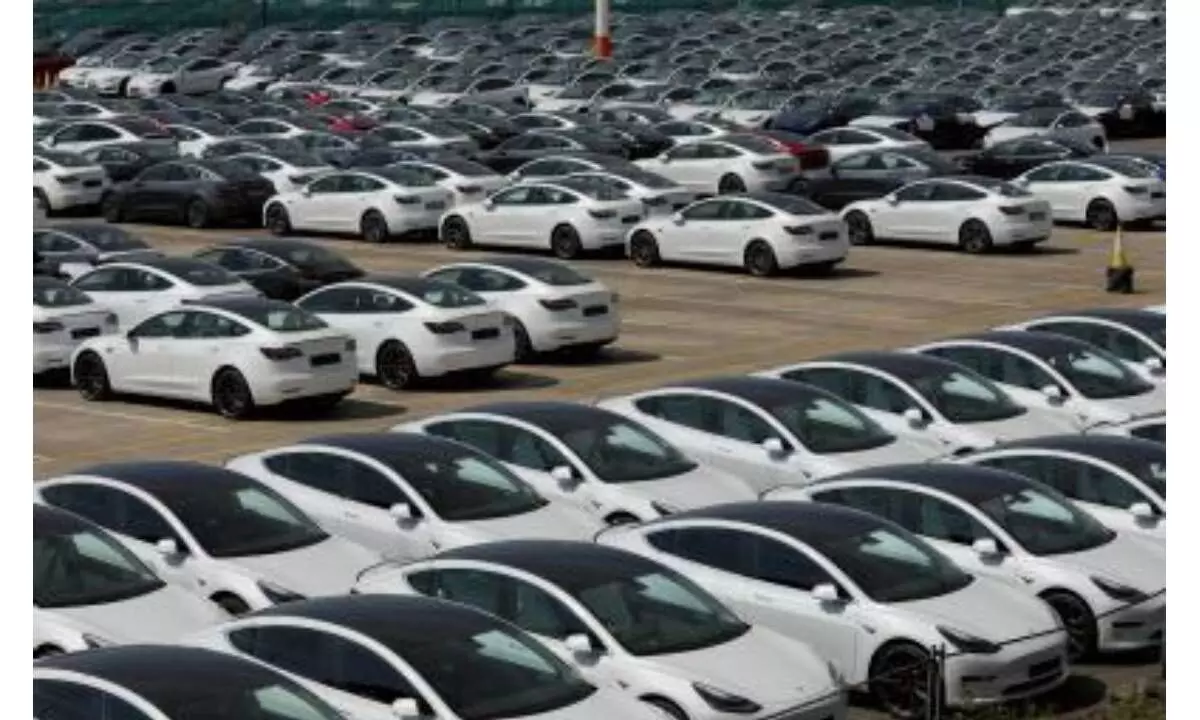Global automakers scale back electric vehicles, turn towards hybrids
Global electrification, previously driven by strong electric vehicle sales, is now showing signs of growth moderation despite supply chain normalisation and price reductions by OEMs, as per a report by JM Financial Institutional Securities
image for illustrative purpose

New Delhi, Feb 27: Global electrification, previously driven by strong electric vehicle sales, is now showing signs of growth moderation despite supply chain normalisation and price reductions by OEMs, as per a report by JM Financial Institutional Securities.
Global automakers like Mercedes, Ford, GM, VW are scaling back EV investments and turning towards hybrids due to shifting consumer preferences and challenges like inadequacy and slow pace of charging infrastructure expansion. We believe the situation is no different in India, the analysts said.
Tata Motors reduced its EV sales estimate and prices recently to boost adoption, citing similar hurdles. MSIL, with its tech-agnostic approach (Hybrids, EVs, CNG, Flex-fuel, etc.), is well-positioned (& hedged) amidst slowing pace of electrification, the report said. Reports indicate of MSIL’s strong Hybrid model launch pipeline going forward (five models in next 2-3 years). Tax rationalisation on hybrids could act as a fillip and shift consumer preference towards this choice of powertrain, it added.
Till last year, global electric vehicle sales continued to outpace supplies (partially owing to semiconductor shortages) with OEs’ orderbook piling to record levels. However, despite normalisation of supply chain, pace of electrification seems to have moderated. Reduction in EV prices (by Tesla, Ford etc.) to drive wider adoption also isn’t helping. Global automakers like Mercedes, Ford, GM, VW have deferred EV related investments, reduced their EV sales guidance indicating moderation in EV growth going ahead, the research said.
Few of these auto OEMs are turning their focus back to Hybrids amidst shifting consumer preference. Domestic demand scenario for electric PVs is no different. Recently, Tata Motors (market leader with 73% share) reduced its FY24 EV sales estimate by 20% (to 75-80K units) and also cut prices by upto Rs 125K/vehicle to drive wider adoption. Lack of adequate charging infra and hesitant customers (to pay premium over ICE vehicles) are the primary reasons for slower EV adoption, the report said.
Currently, MSIL is working on multiple technologies (Hybrids, EVs, Flex-fuel and Bio-gas in addition to ICE/CNG) as the company believes multiple technologies can co-exist in the medium-to-long term. Its current tech-agnostic approach is again a well thought-out approach against committing resources to a single technology, the report said.

